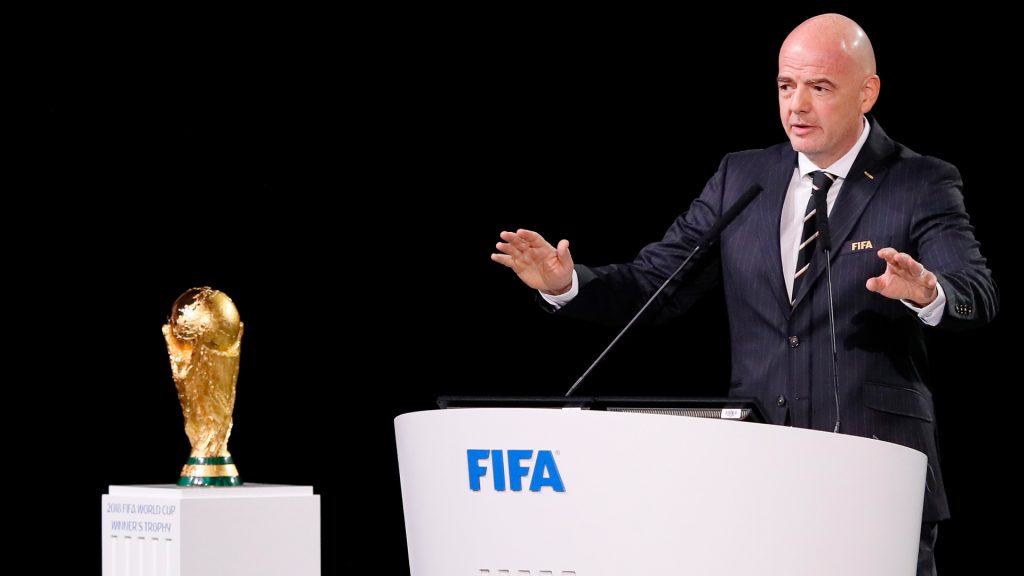FIFA President Gianni Infantino was asked about the possibility of expanding the number of teams participating in the 2030 World Cup, a proposal spearheaded by South America’s soccer governing body, CONMEBOL.
As FIFA prepares to introduce a 48-team format for the 2026 World Cup, discussions have emerged about an even larger expansion for the tournament’s centennial edition in 2030. The proposal would allow 64 nations to compete, marking a significant step in the tournament’s evolution.
In an interview with Argentine journalist Andrés Cantor, Infantino was candid about the idea, emphasizing that while it poses challenges, it isn’t entirely off the table.
“Right now, we’re organizing the first World Cup with 48 teams, which is already a big challenge. After that, we’ll see what happens,” Infantino said with a chuckle, as Cantor playfully urged him not to entertain CONMEBOL’s suggestion too seriously.
Infantino went on to explain his broader vision for inclusivity in the World Cup. “If it were up to me as FIFA President, I’d organize a World Cup with 200 or 211 countries—let everyone in the world play in it,” he joked before clarifying, “But the World Cup is for the best teams, and they have to qualify, of course”.

Why South America is pushing for a 64-team World Cup
The proposal originated from CONMEBOL President Alejandro Domínguez, who advocated for the expansion, emphasizing the symbolic significance of the 2030 World Cup as a global celebration.
“I want us to use all our creativity to ensure the entire world is part of this festival—the biggest and most popular event on planet Earth, the 2030 World Cup. No one should be left out of this celebration,” Domínguez said.
The 2030 World Cup will be the first in history to span three continents. While Spain, Portugal, and Morocco will host the majority of matches, South America will play a special role with Argentina, Uruguay, and Paraguay each hosting one match to commemorate the tournament’s centenary.
The push for 64 teams aims to increase South America’s presence in the tournament, allowing Argentina, Uruguay, and Paraguay to host their group-stage matches on home soil. While such an expansion presents logistical challenges, FIFA has not ruled out the possibility of implementing CONMEBOL’s ambitious proposal.
From: bolavip.com








